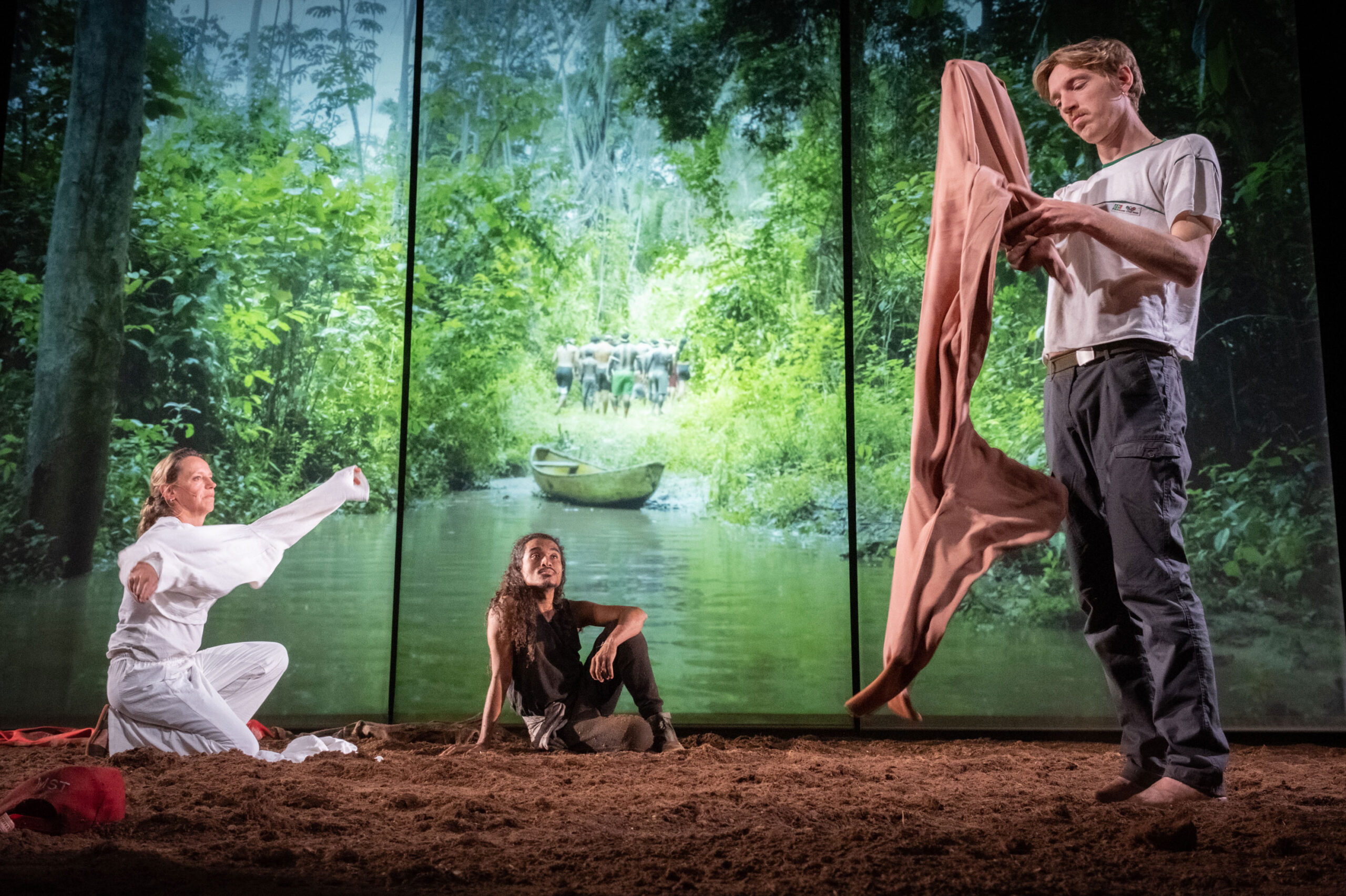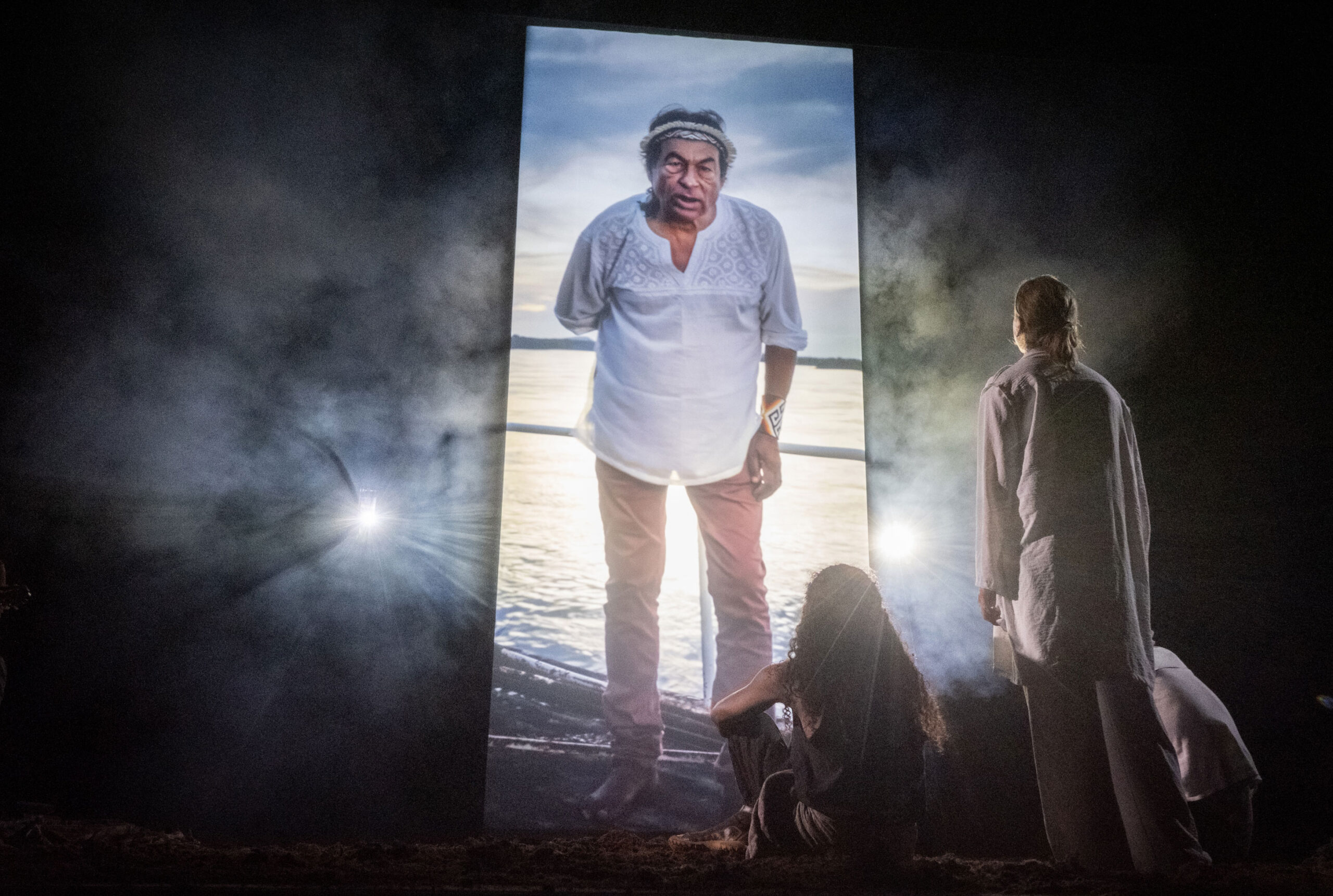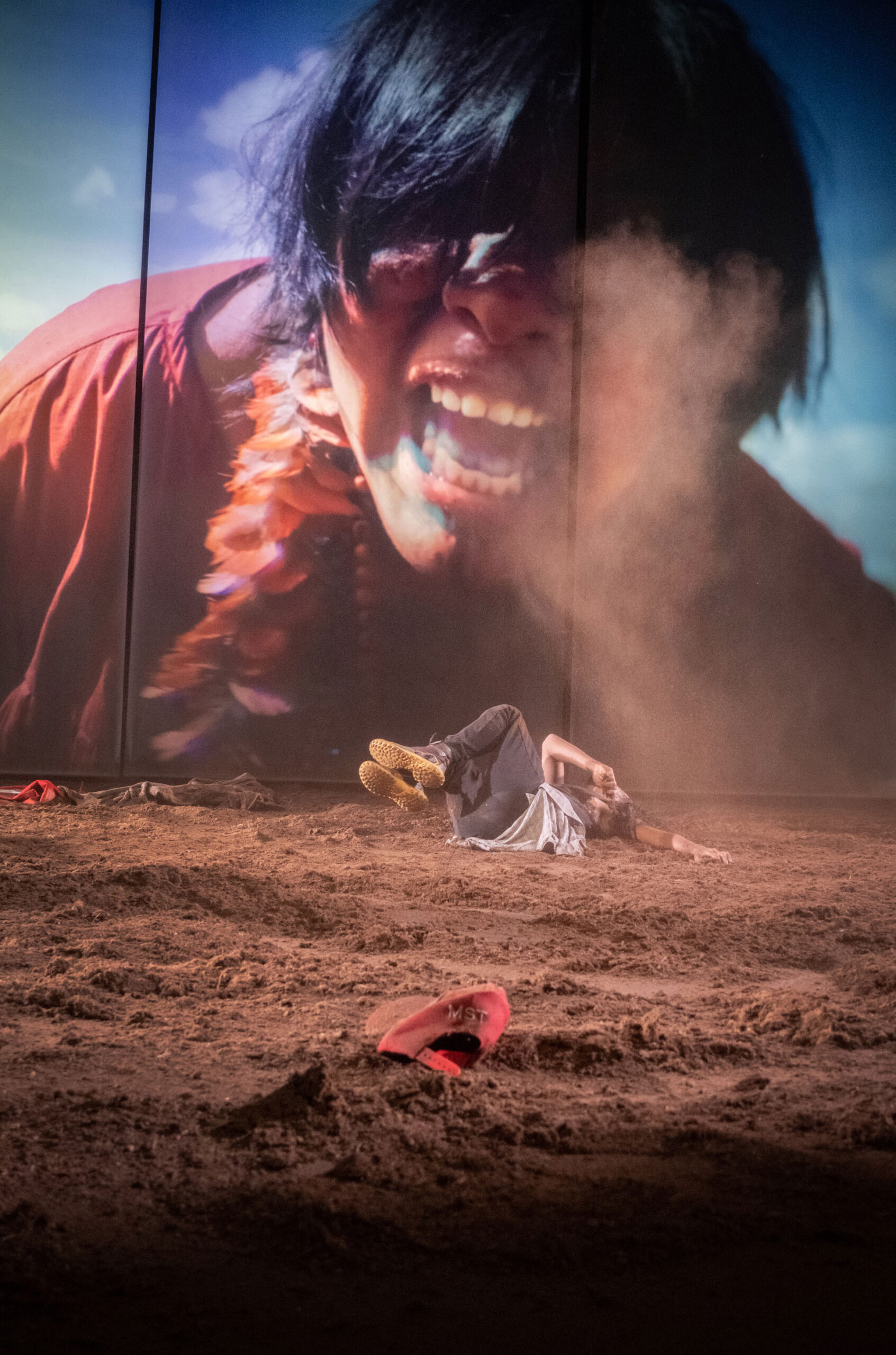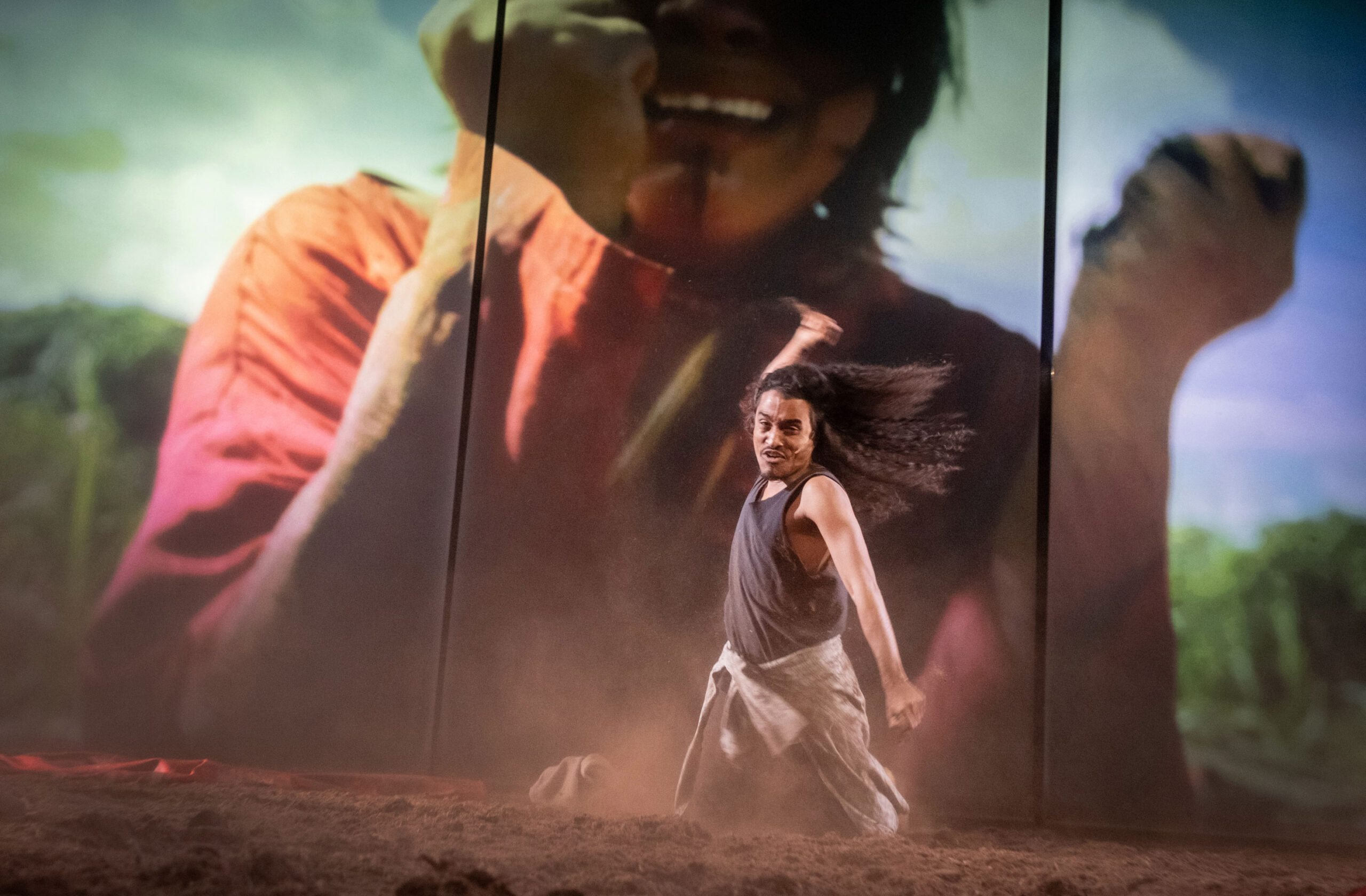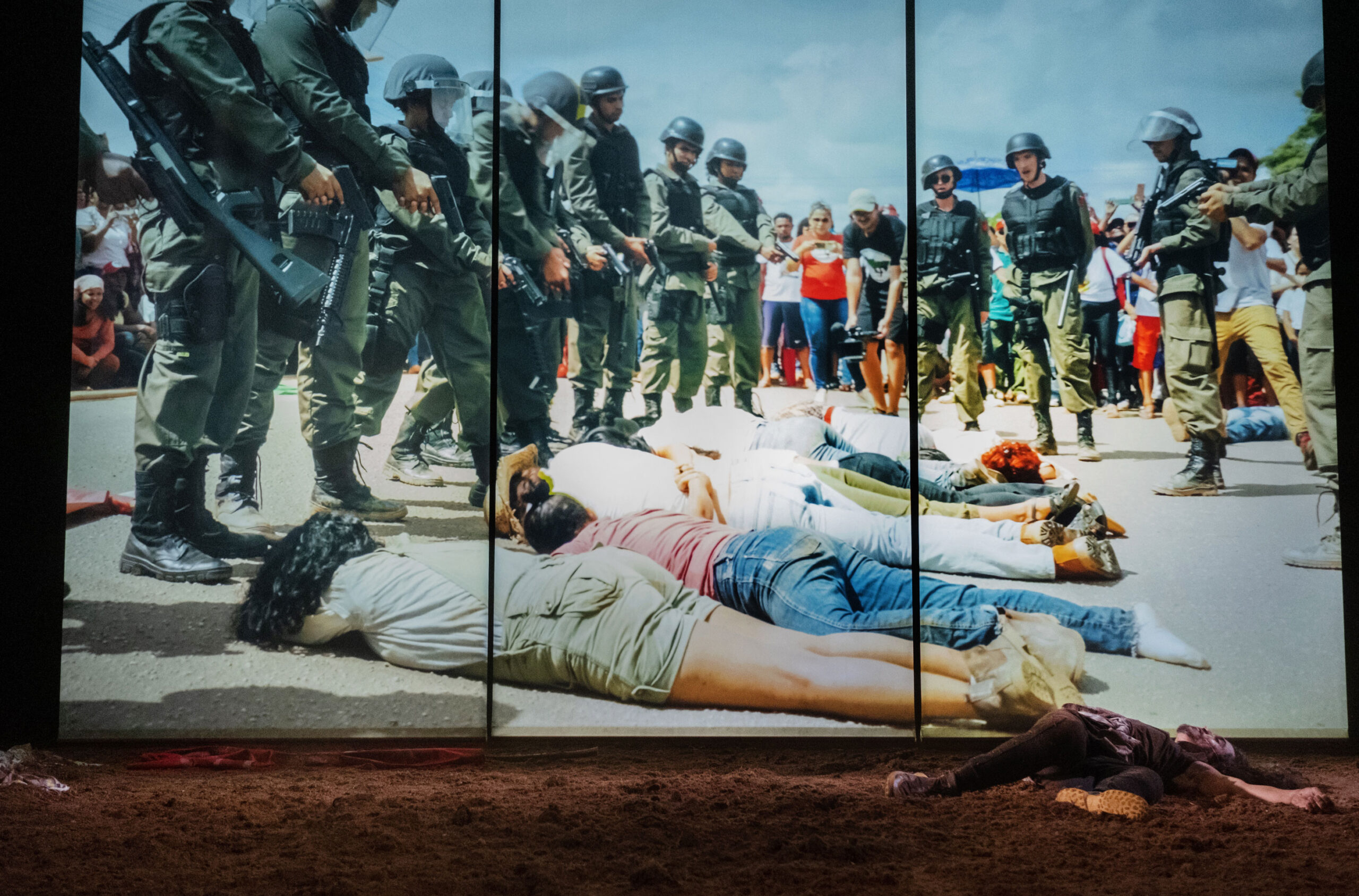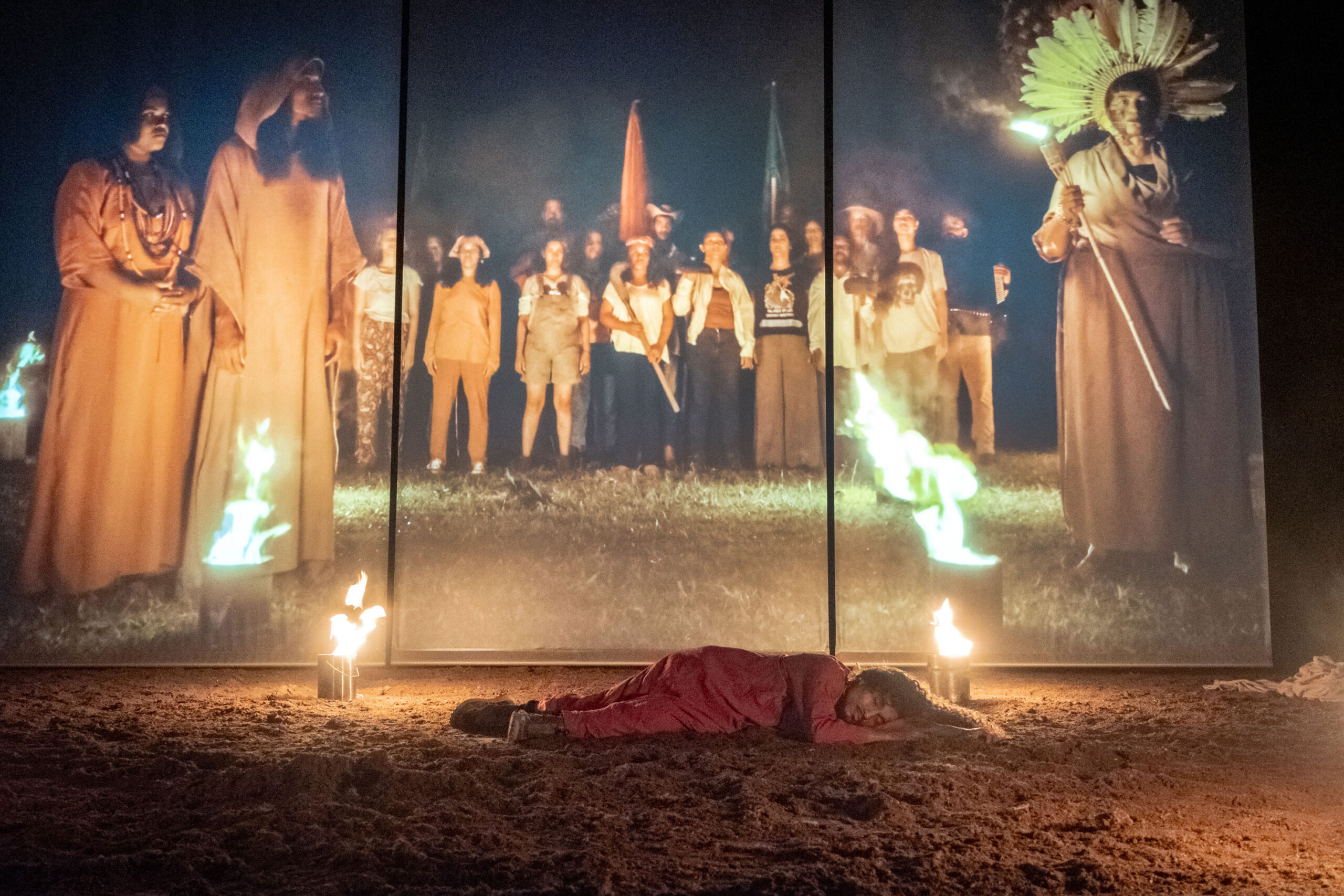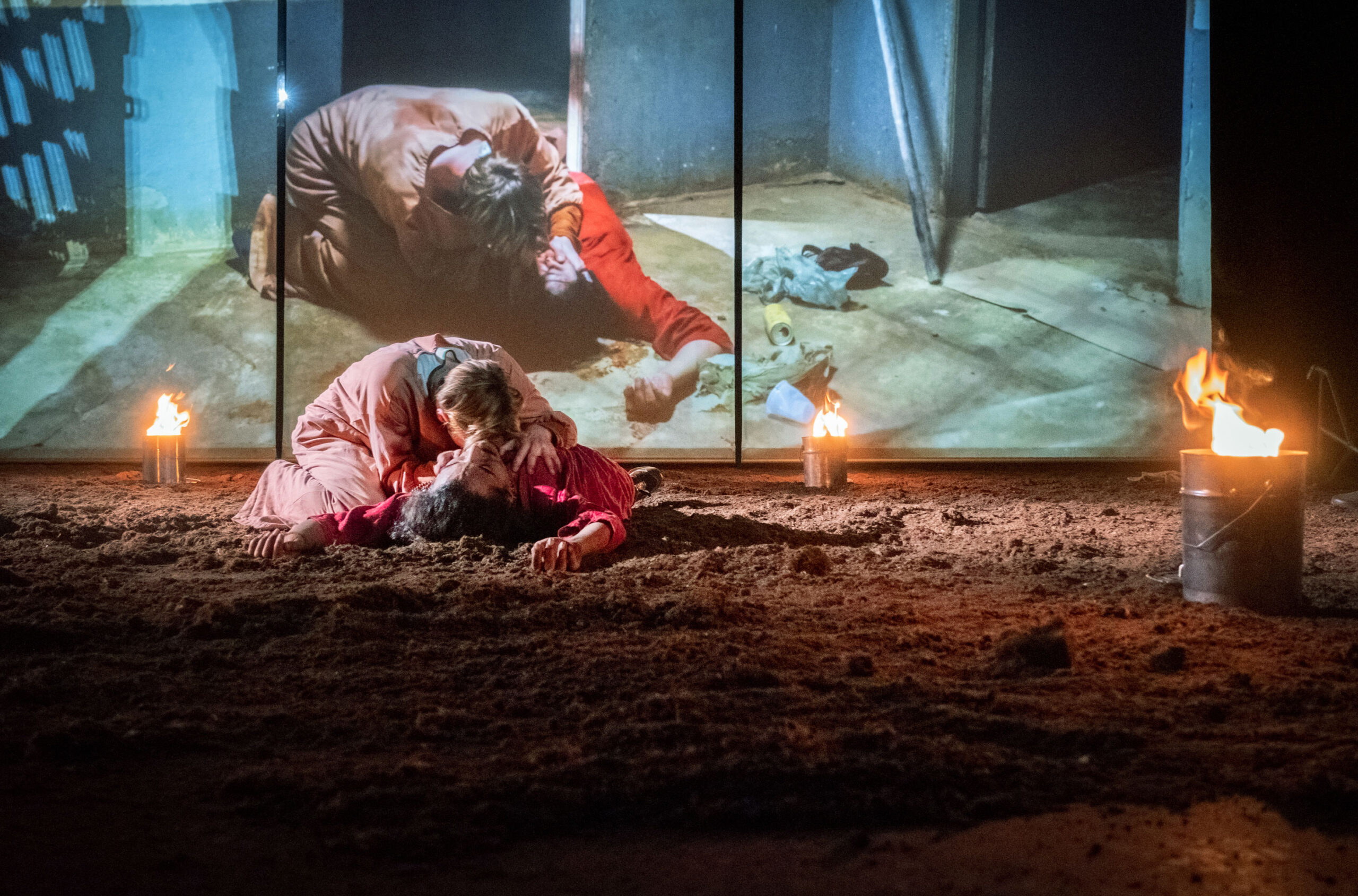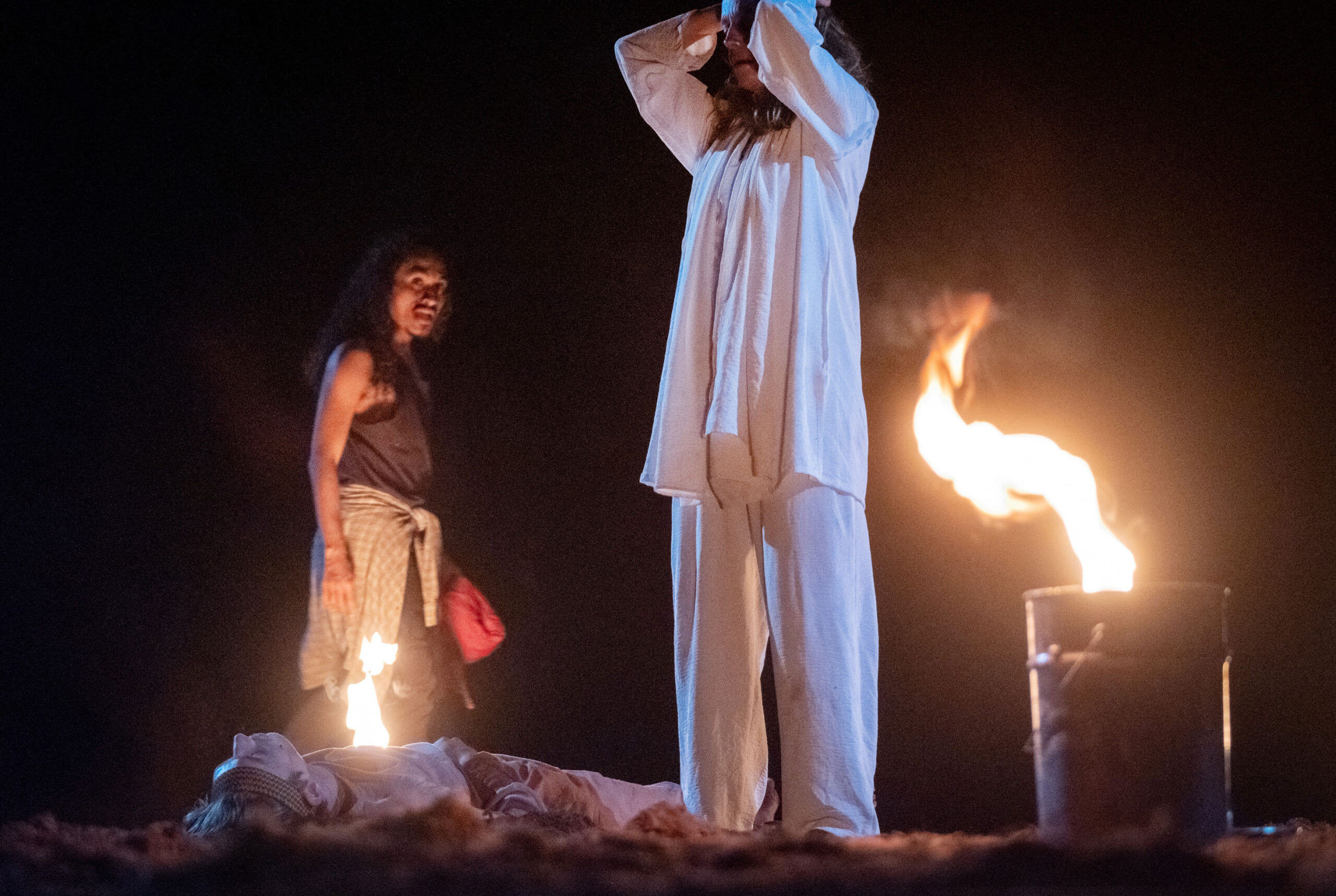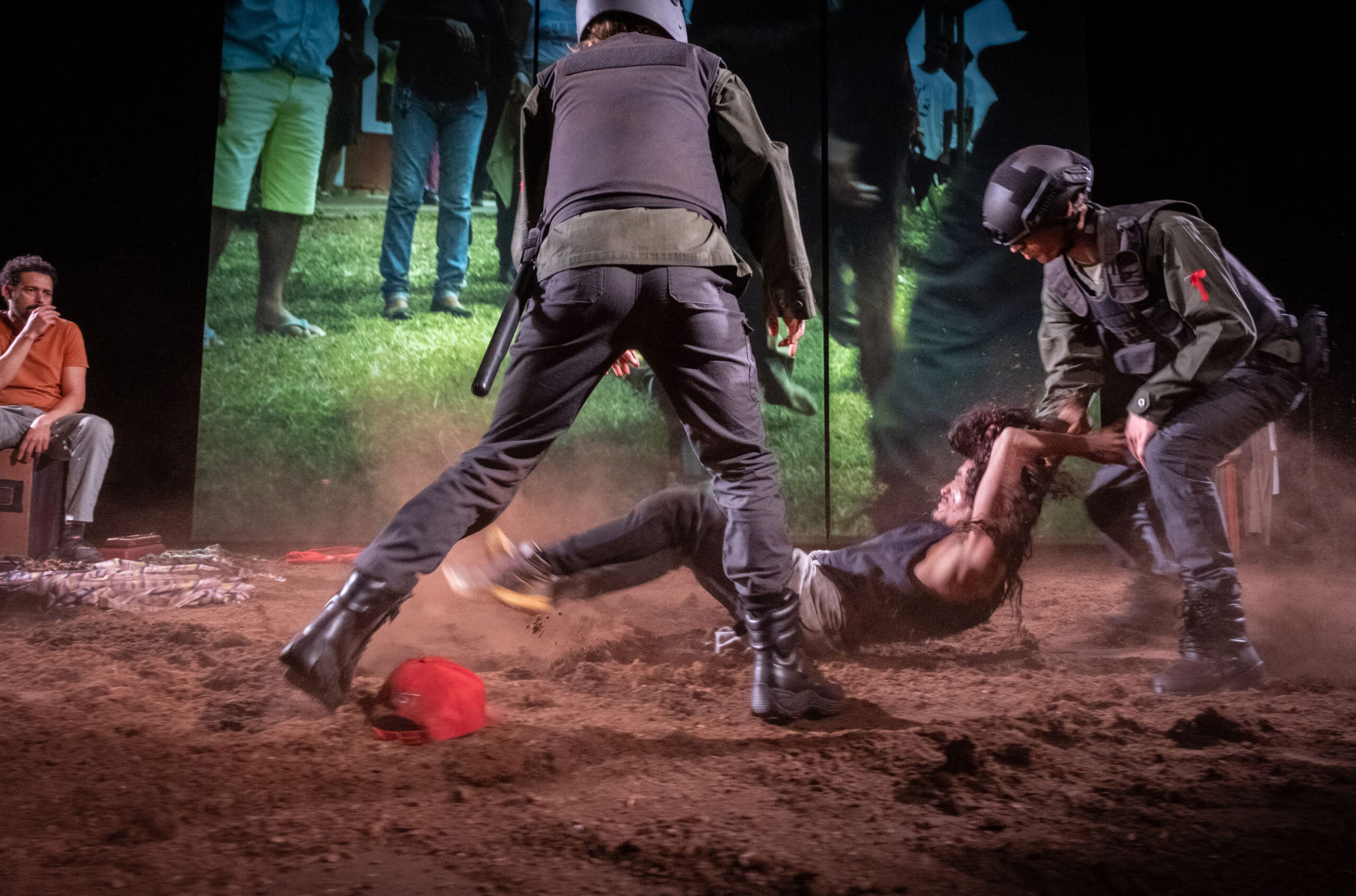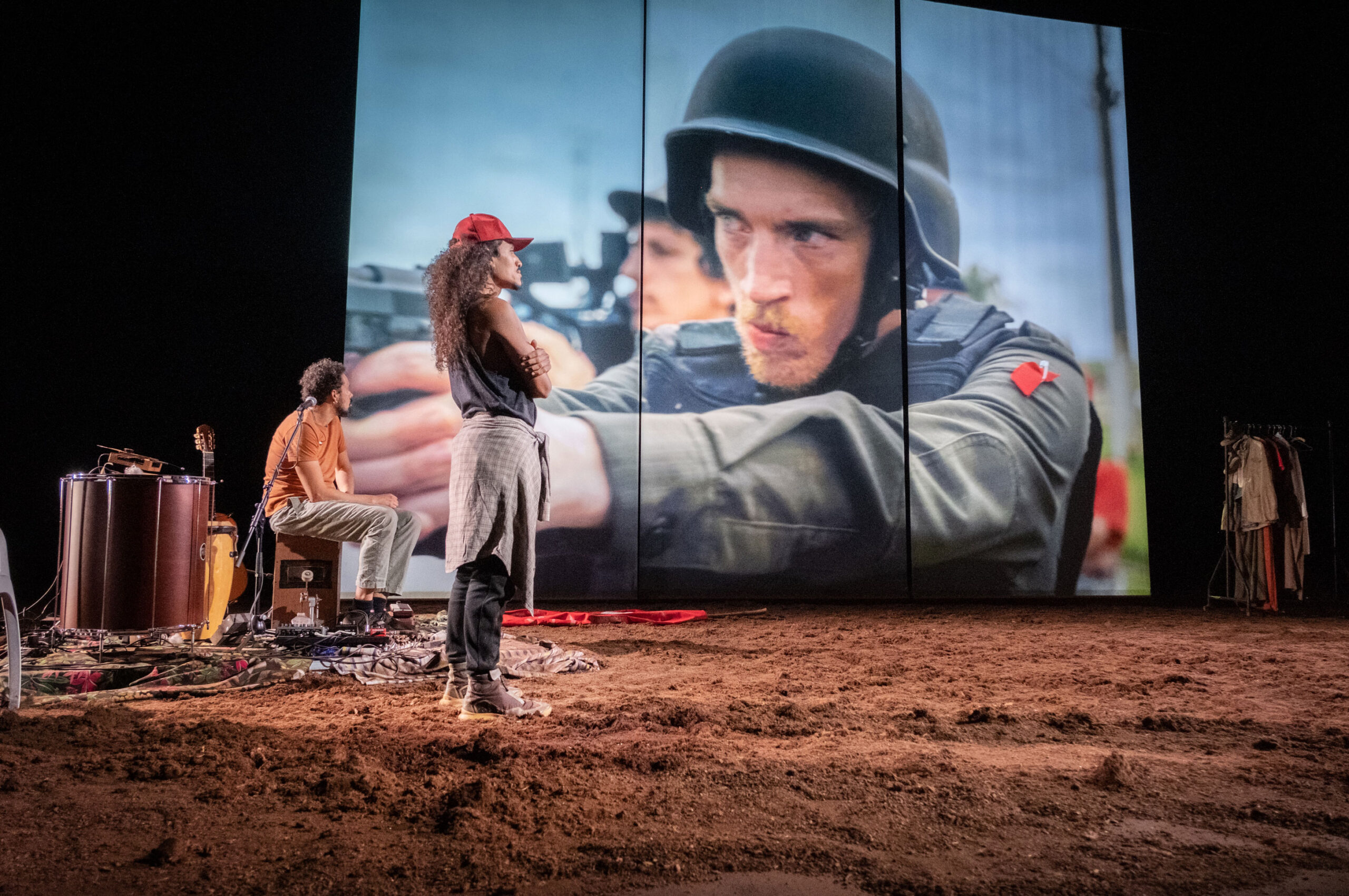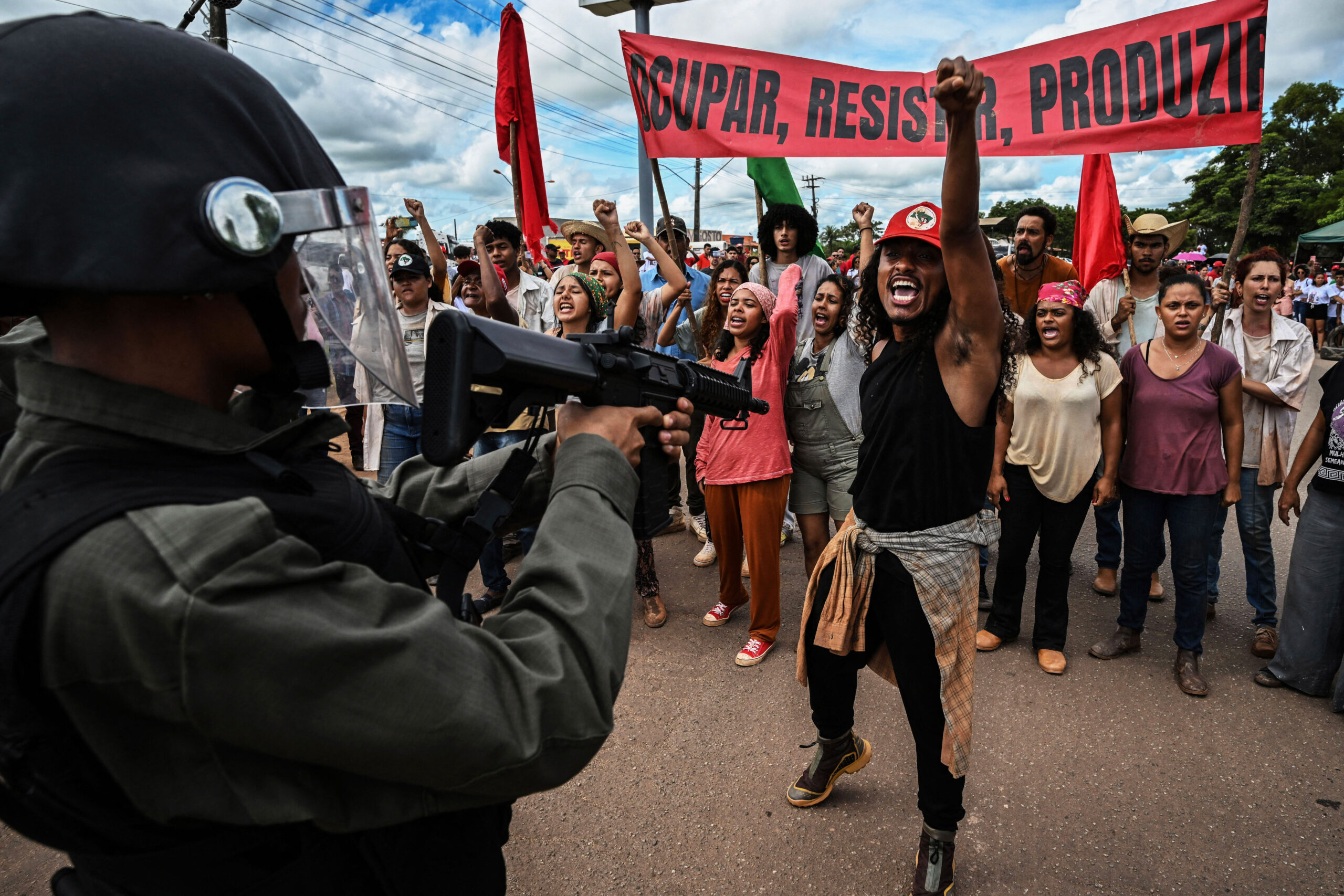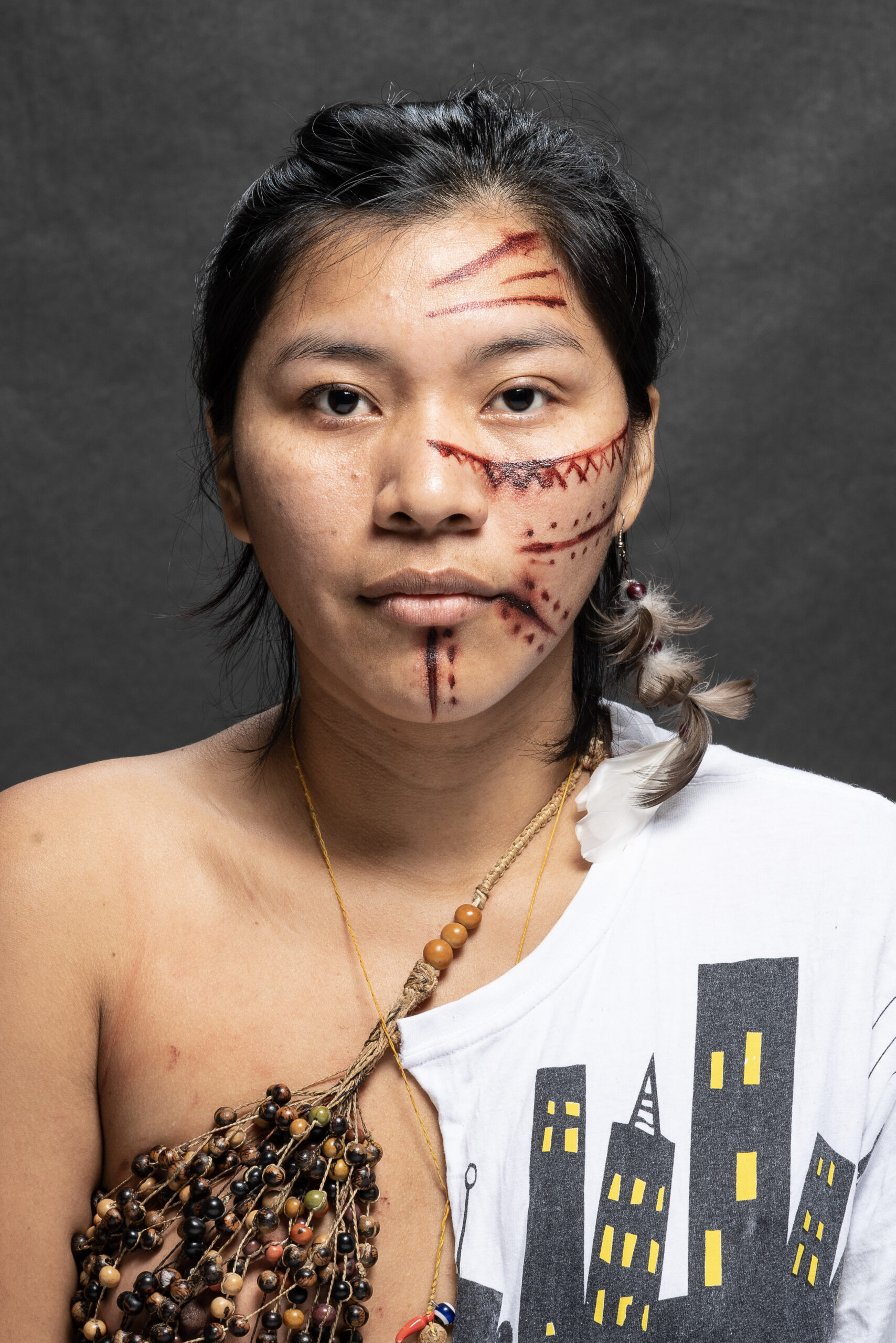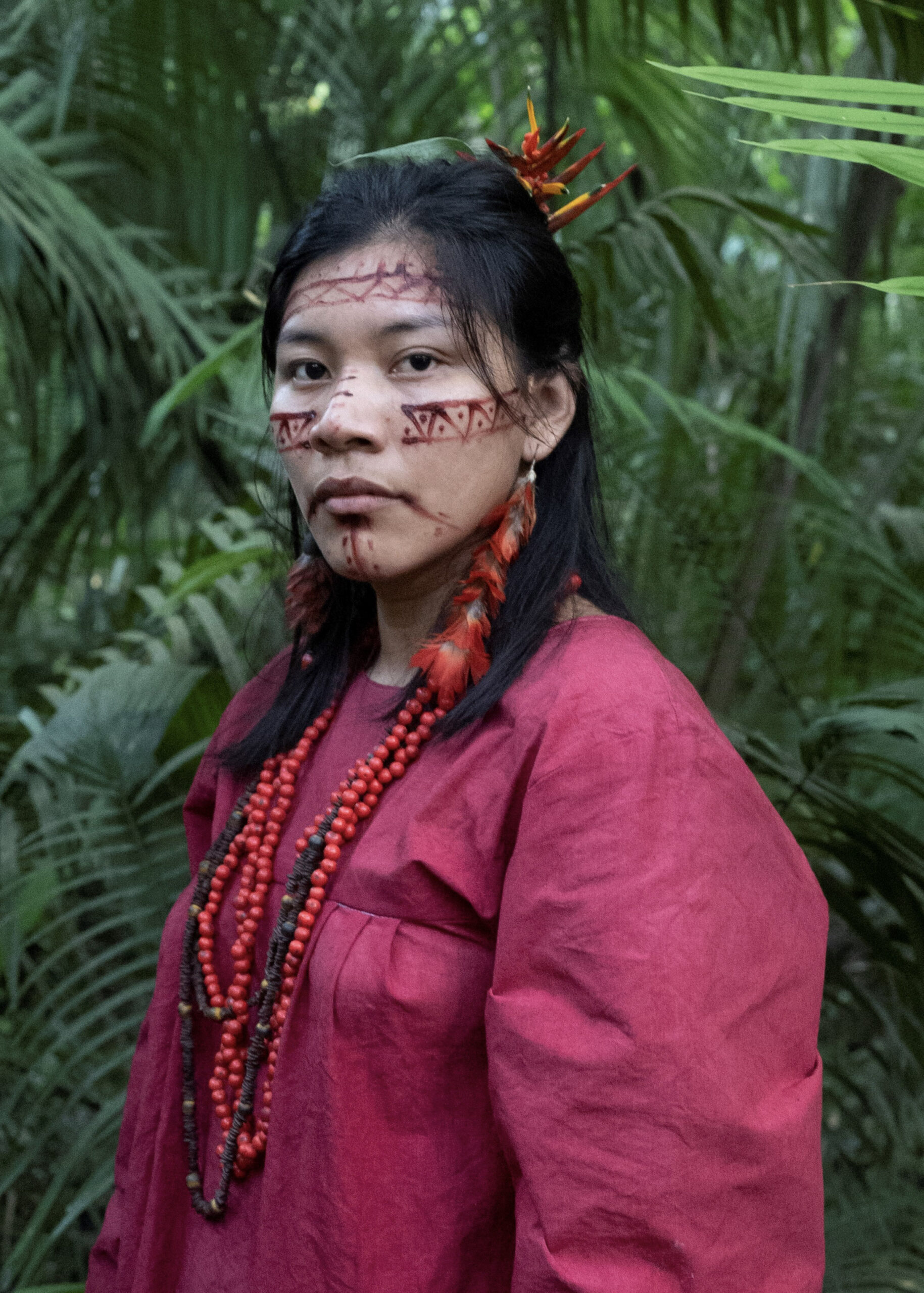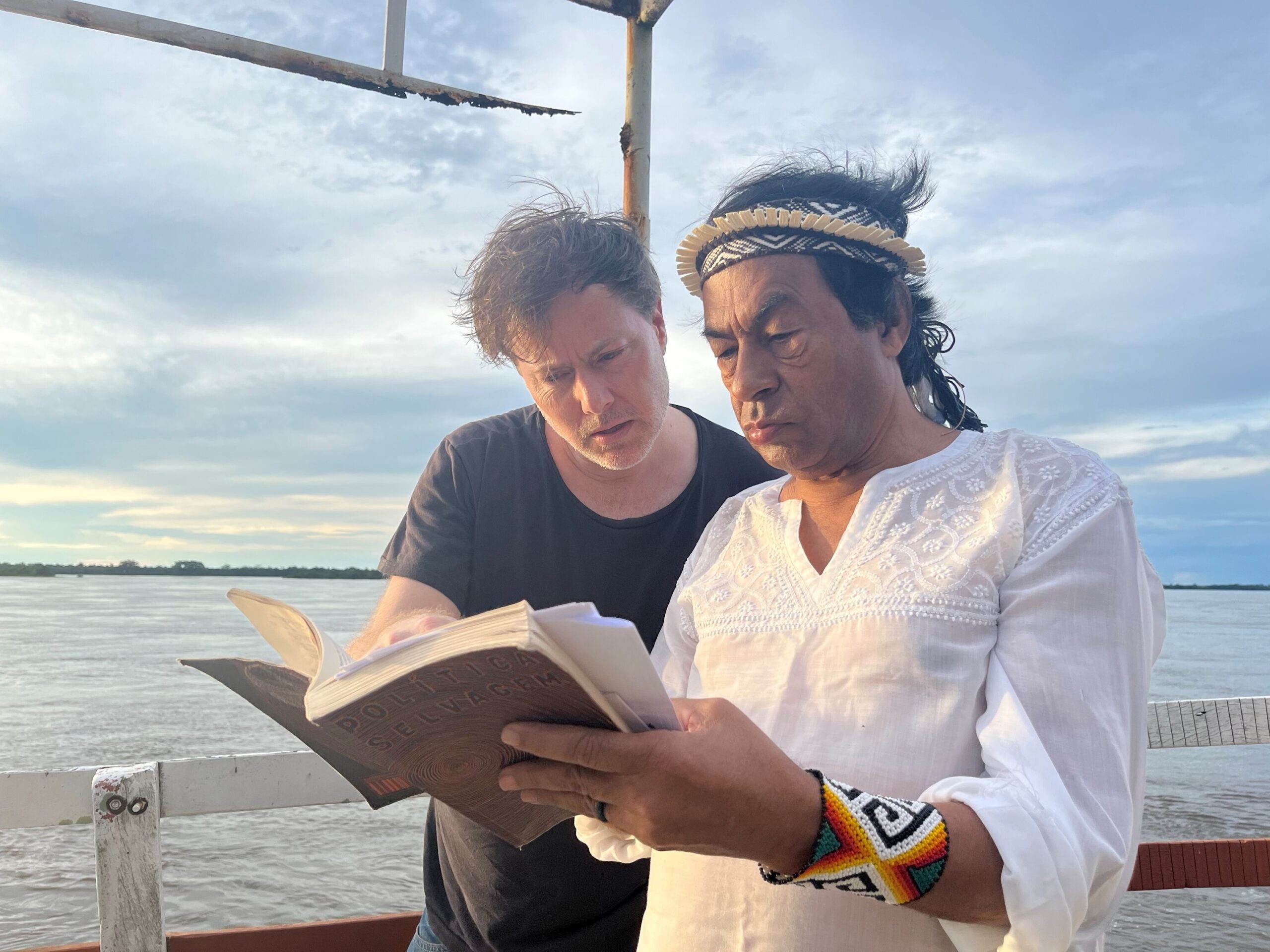Tickets are up to 25% OFF for Members! Plus, NYU Skirball Members gain access to exclusive online and in-person events offering behind-the-scenes insights into our artists and our productions.
NORTH AMERICAN PREMIERE
“Compelling … balanced … breathtaking.” – The New York Times
Director Milo Rau returns to NYU Skirball with a groundbreaking production where ancient myth meets modern-day activism.
About the Work
In this captivating rendition of Antigone, witness the stirring performance by Amazon indigenous activist Kay Sara in the titular role, accompanied by a Greek chorus comprised of survivors from Brazil’s historic Landless Workers’ Movement (MST) massacre in 1996. The production examines the Greek classic as an allegory for political struggle and fierce resistance against the implacable greed of a modern, devastating world.
Director Milo Rau and his team embarked on a journey to the heart of Brazil’s Pará state, where the ravages of capitalism devour nature and displace communities. Collaborating with MST, the world’s largest landless workers’ movement, they craft a compelling narrative that sheds light on the violent upheavals inflicted by modern states, prioritizing private interests over ancestral rights to the land.
Following the success of Orestes in Mosul and The New Gospel, Milo Rau’s trilogy of ancient myths culminates in the lush landscapes of the Amazon rainforest. Experience the fusion of art and activism as Brazilian and European actors unite with MST activists, delivering a performance charged with political significance.
PRODUCTION WARNINGS
The production includes strong language, depictions of violence and references to suicide. Firearms with blanks are used in the production. Contains smoke and prolonged smoke effects
Antigone is in Amazon is performed in English, Portuguese, and Dutch with Dutch and English surtitles.
EL DORADO DO Carajás Massacre
On April 17, 1996, tragedy struck Brazil’s Landless Workers Movement (MST) as 19 of its members were fatally shot by Pará state military police during a protest at a private ranch in Eldorado do Carajás municipality. This horrific event, known as the Eldorado do Carajás massacre, left 69 others injured, some with severe wounds. The aftermath saw accusations flying between the MST, landowners, and the government, each blaming the other for the bloodshed, maimings, and property destruction. The MST, a beacon of hope for those with nothing, found itself thrust into the international spotlight, garnering widespread attention for its struggle. In the wake of the massacre, calls for justice echoed, with the movement’s lawyer decrying the state’s failure to provide adequate judicial and healthcare support for the victims.
About the Artists
Milo Rau is a Swiss director, writer and filmmaker. Critics call Rau the “most influential” (Die Zeit), “most awarded” (Le Soir), “most interesting” (De Standaard), “most controversial” (La Repubblica), “most scandalous” (New York Times) or “most ambitious” (The Guardian) artist of our time. In projects like The Congo Tribunal, La Reprise, Orestes in Mosul, and The New Gospel or School of Resistance, Rau posits that theater does not have to be detached from society but that it is a necessary contribution to politics, culture, and society – a place to tell true stories that shape our society. After six years as artistic leader at NTGent, Rau was appointed as new curator of the Wiener Festwochen in Vienna. The 2024 season will be his first as curator. Rau remains on board at NTGent as house artist.
NTGent (or Nederlands Toneel Gent) was founded in 1965 as the city theater of Ghent. As a city theater, NTGent wants to question, motivate and rouse a diverse audience. it does so by making and presenting high-profile productions and by mobilizing theatre for social debate. It presents its own theatre productions as well as guest productions, touring in Flanders, the Netherlands and internationally.
RUN TIME
1 hour and 50 minutes
